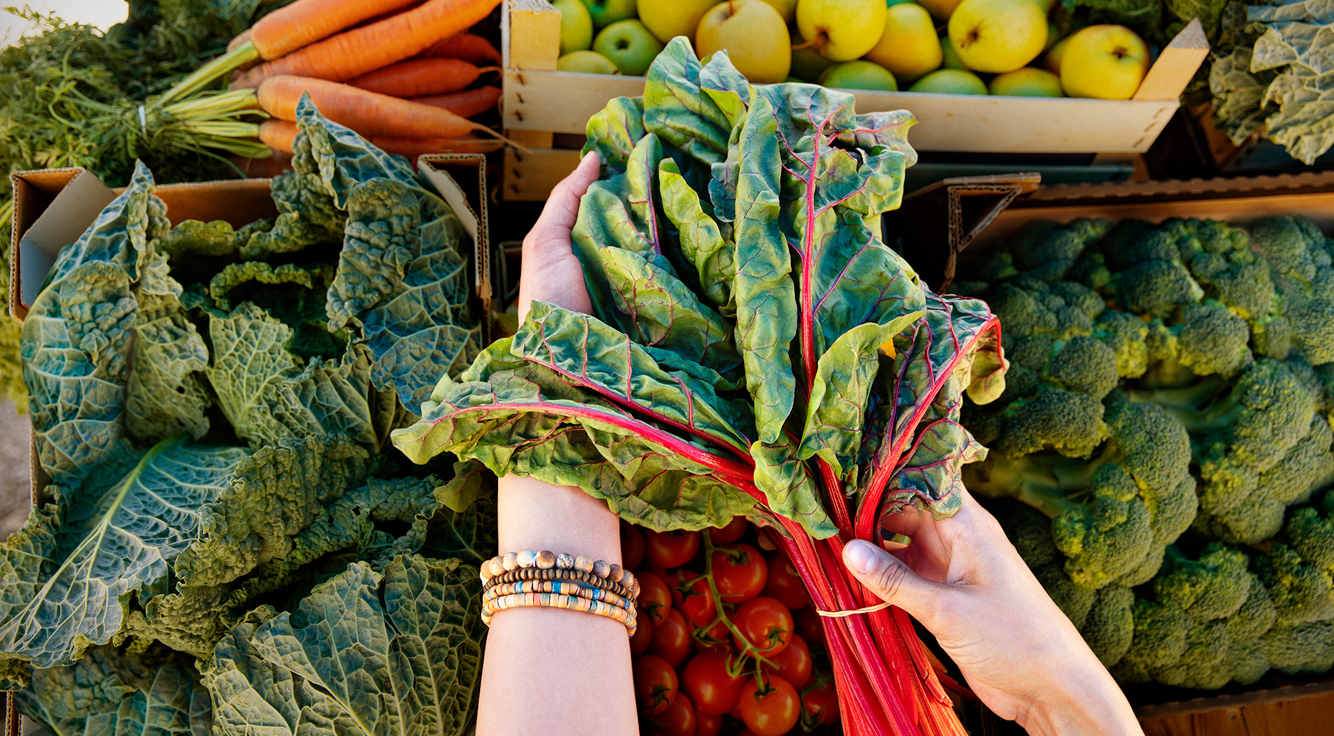
Food as medicine: Pick the right foods to help your mood
When a bad mood strikes, there are plenty of options to help you feel better. Meditating, exercising, reframing negative thoughts — all of these activities can boost your spirits. Another way to fight a bad mood? Eating the right food. Picking the right foods not only improves your physical health: your mental health can benefit as well. While you may be tempted to reach for a tub of ice cream after a difficult day — foods that are high in sugar, refined carbs, or trans fats may end up making you feel worse.
Here are 6 unexpected foods that can help boost your mood.
Start your day with whole grains
A simple smart food choice is to swap out refined carbs, like white bread and sugar-sweetened cereals, with whole grains such as wheat bread and quinoa. A source of B vitamins, whole grains aid in the production of brain chemicals that promote well-being, like serotonin and tryptophan.1 And breakfast is the perfect time to add them to your day. Starting your morning with a bowl of steel-cut oatmeal, for example, will not only keep you full but also prevent your energy from crashing before lunch. You can even dress up breakfast with tasty, healthy fruits such as berries or bananas for an added boost.
Find power in probiotics
The connection between our gut health and brain health is a topic of increasing study. While there is still work to be done, simply including probiotics in your diet may help your mood and improve brain function. Look for probiotic foods like Greek yogurt, sauerkraut, and kimchi, which is becoming easier to find in non-specialty food stores. You can even try a probiotic supplement. Just talk to your doctor about which supplement may work best for you.
Opt for omega-3
There’s a reason certain types of fish always end up on lists of good foods to eat — it’s because they’re packed with omega-3 fatty acids, which can help with depression and anxiety.2,3 Salmon, tuna, halibut, and mackerel are all good sources of omega-3. So, for your next lunch, try a salad topped with salmon. Not a fan of fish? Check out these unexpected sources of omega-3, like flax and chia seeds, and add them to your grocery list.
Look for leafy greens
Dark leafy greens such as kale and spinach are packed with nutrients. But another, often overlooked option to reach for the next time you’re at the store is Swiss chard. It’s rich in vitamin K and magnesium. And studies have shown that magnesium may have protective effects against depression.4 If you choose the rainbow chard variety, don’t throw away the stems, either. They’re nutritious and delicious when cooked. Here’s a fast and tasty recipe that’s perfect for a weeknight.
- Take 1 bundle of Swiss chard, remove the leaves from the stems, and roughly chop. Set leaves aside.
- Medium-dice the stems, and then sauté them in a large pan with olive oil until slightly softened.
- Add minced garlic. Cook for 1 to 2 minutes more, until garlic is fragrant.
- Deglaze the pan with a splash of white wine (water works just fine, too).
- Add the chard leaves, a pinch or 2 of red chili flakes for an added kick, plus freshly ground pepper and (a bit of) salt. Cook until the leaves are wilted, about 5 to 8 minutes.
- Remove everything from the pan, add a squeeze of lemon juice, and serve.
Kick up the flavor with spices
Spices are often an afterthought when it comes to your diet. Yet in addition to boosting the flavor of a meal — and smelling great — they can benefit our health, too. A particularly good spice to try? Turmeric. It contains a compound called curcumin, which acts as an antioxidant. It’s also an anti-inflammatory, which can help curb symptoms of depression.5
A popular spice in many Indian dishes, turmeric can transform a chicken dish or make a great addition to a smoothie. Just blend together pineapple and mango chunks (fresh or frozen), a dark leafy green like kale, Greek yogurt, water, and a dash or 2 of turmeric for a beautiful and tasty drink.
Delight in dark chocolate
Yes, you read that correctly. If you have a sweet tooth, don’t reach for just any chocolate. Studies have shown that dark chocolate may help with brain function and lead to improvements in mood. Like other foods listed here, it’s an antioxidant and has anti-inflammatory properties. It contains zinc, which is linked to brain growth and function. Zinc also has been found to reduce the severity of depressive symptoms.6 To get the most health benefits from your chocolate, find some with 70% or more cocoa. So, go ahead and satisfy your sweet tooth — just don’t forget that moderation is key.
It’s important to note that what we eat is only part of what keeps us healthy. If you have persistent feelings of sadness or a bad mood you can’t shake, talk to your doctor. And remember — there are resources available to you.
1T.S. Sathyanarayana, “Understanding nutrition, depression and mental illnesses,” Indian Journal of Psychiatry, April-June 2008, ncbi.nlm.nih.gov/pmc/articles/PMC2738337/.
2Rebecca Clay, “The link between food and mental health,” Monitor on Psychology, American Psychological Association, September 2017, apa.org/monitor/2017/09/food-mental-health.
3Gieseppe Grosso et al., “Omega-3 Fatty Acids and Depression: Scientific Evidence and Biological Mechanisms,” Oxidative Medicine and Cellular Longevity, March 18, 2014, ncbi.nlm.nih.gov/pmc/articles/PMC3976923/.
4Jessica Wang et al., “Zinc, Magnesium, Selenium and Depression: A Review of the Evidence, Potential Mechanisms and Implications,” Nutrients, May 10, 2018, ncbi.nlm.nih.gov/pmc/articles/PMC5986464/.
5Adrian L. Lopresti and Peter D. Drummond, “Efficacy of curcumin, and a saffron/curcumin combination for the treatment of major depression: A randomised, double-blind, placebo-controlled study,” Journal of Affective Disorders, January 2017, ncbi.nlm.nih.gov/pubmed/27723543.
6See note 4.
TOPICSEating healthyMental Health and WellnessNutritionRecipe





